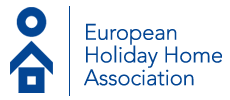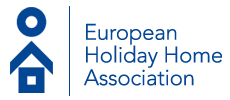The European Holiday Home Association (EHHA), the united voice for short-term rental accommodation in Europe, is deeply concerned about the potential consequences of the deemed supplier (DS) regime forming part of the VAT in the digital age (ViDA) proposal for short-term rentals (STR); in particular, its impact on the thousands of SMEs and individual property owners that make up the accommodation rental sector.
The proposed DS regime would pull occasional hosts and micro-entrepreneurs into the VAT net even though they are not otherwise subject to VAT, or remain well below existing national VAT thresholds. This unfairly subjects them to VAT without the right to – and benefit of – VAT deductions, including those provided to traditional hospitality operators such as hotels.
EHHA Interim Secretary General, Viktorija Molnar, said, “We urge EU Member States to protect small short-term rental providers, which are often just individual property owners, by opposing the DS regime contained in the ViDA proposal. Not doing so will hurt the livelihoods of European families, make travel more expensive for consumers and negatively impact the EU’s GDP.”
Additionally, the proposed reforms introduce yet another platform reporting mechanism and an obligation for online platforms to collect and remit VAT for STR accommodation offered by small STR accommodation providers. This is in addition to DAC 7 and ongoing discussions on STR activity reporting within the context of the Proposal for a Regulation on STR data collection (COM (2022)571). While the Proposal appears to target certain large online platforms and has been pitched as a fairness measure to create parity with hotels, this would disproportionately affect smaller platforms and SMEs that do not have the resources necessary to comply with the Proposal’s obligations.
The proposed DS could have several negative consequences, including:
- Reducing revenue for smaller providers and making accommodation rental less affordable, especially occasional rentals that many families rely on to pay bills and cope with increased living costs.
- Creating barriers to entry for private individuals and VAT-exempt enterprises, stifling innovation and limiting consumer choice and fair competition.
- Imposing an additional tax on tourism, making EU travel more expensive at a time when the sector’s recovery is vital. This could have long-term negative impacts on the tourism economy and the EU’s GDP.
- Mandating a uniform EU-wide treatment for short term rentals in the tourism industry, overriding Member State autonomy on VAT policy.
- Subjecting only certain online platforms to the DS regime encourages guests to platform shop for “cheaper” stays and encourages a return to an offline economy. This will take rentals off the radar for VAT and income taxes.
We urge Member States to consider the following recommendations for ensuring a sustainable tourism and travel ecosystem in Europe:
- Reject the deemed supplier section of ViDA to protect small STR accommodation providers and maintain affordability.
- Alternatively, postpone the DS regime until the proper analysis of DAC7 is available and Commission’s proposal for a regulation on STR data collection and sharing is adopted and implemented – to make informed policy decisions.
- Adopt a holistic approach to tourism regulations, considering parallel new obligations and taxes in the sector such as the Fit for 55 jet tax proposal and the new European Travel Information and Authorisation System (ETIAS) that are expected to make travel in and to Europe even more expensive.
For more information, please see EHHA Position Paper on ViDA here.

